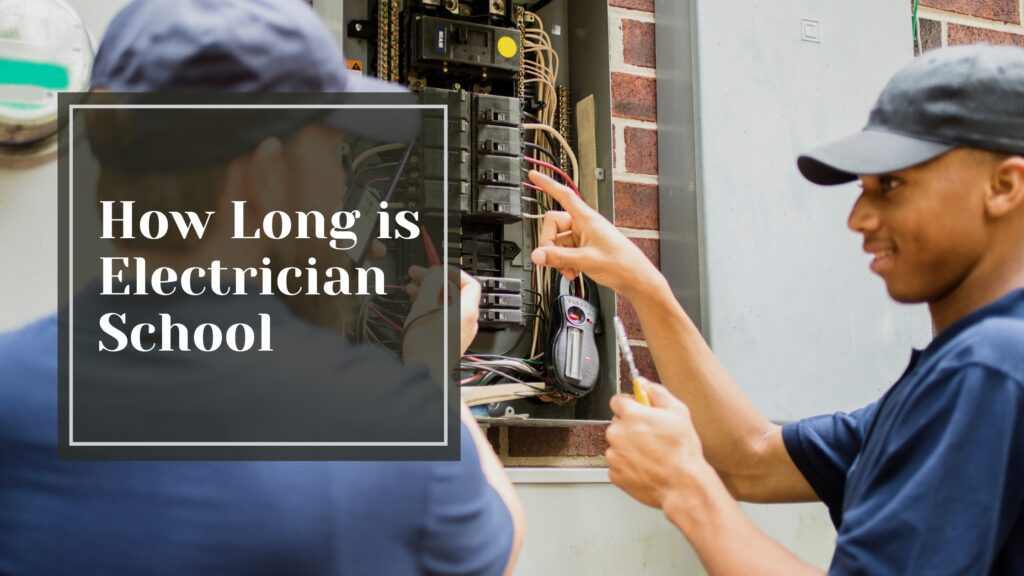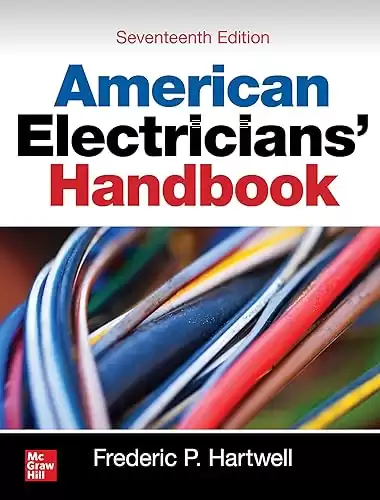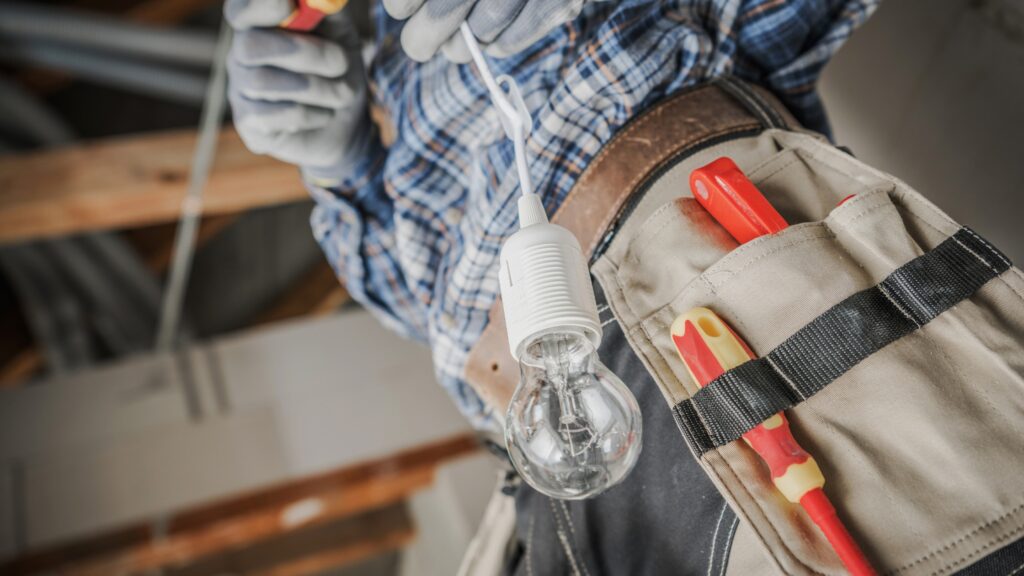You’ve been thinking about becoming an electrician, but you’re wondering how long the training takes. It’s a good question to ask if you’re considering a career change to this in-demand trade. Electrician programs vary in duration from as little as 6 months to over 5 years for a full apprenticeship. The time commitment also depends on whether you go the vocational school route, enter an apprenticeship, or both. In this article at Talking Tradesmen, we’ll break down the typical electrician school timeline so you can get a clear picture of the training required.
Table of Contents
ToggleElectrician Training Programs and Requirements
To become a licensed electrician, you’ll need to complete an accredited training program. Trade schools, technical colleges, and community colleges offer electrician training programs that usually award a certificate or associate’s degree.
Apprenticeship Programs
A popular option is completing an apprenticeship program, where you work under a licensed electrician while taking courses. Apprenticeships typically last 4 years and require 2,000 hours of on-the-job training and at least 144 hours of technical education. You get paid while you learn. Many people find apprenticeships the most valuable way to gain real-world experience.
Technical Schools and Community Colleges
If you prefer a classroom setting, many technical schools and community colleges offer electrician training programs resulting in a certificate or associate’s degree. These usually take 9 months to 2 years to complete. You’ll learn electrical theory, blueprint reading, safety and first aid practices, and residential and commercial wiring. Hands-on practice is also emphasized.
While in school, you should focus on math, especially algebra, geometry, and trigonometry. Strong math skills are essential for many aspects of an electrician’s work. You should also study the National Electrical Code, which establishes standards for safe electrical installations.
No matter which training path you choose, you’ll need a combination of classroom learning and on-the-job experience. Both apprenticeships and school-based programs will prepare you to pass the licensure exam in your state. With the right dedication, you’ll be well on your way to a rewarding career as an electrician.
How Long Does Electrician School Take?
Becoming an electrician typically requires completing an accredited training program and passing an exam. The length of electrician school can vary depending on the specific program and level of education you want to achieve.
Trade School Programs
The most common path is through a trade school program. These programs usually award a certificate or associate’s degree and take about two years of full-time study to complete. Programs cover core topics like electrical theory, blueprint reading, safety practices, and installing and repairing systems. You’ll get hands-on experience through internships, apprenticeships, or job shadowing.
Apprenticeship Programs
Apprenticeship programs are another popular option. These programs combine paid on-the-job training with classroom education. Apprenticeships usually take four years to complete but allow you to earn a paycheck while you learn. You’ll work full-time under the supervision of a licensed electrician while also taking courses at a local trade school or community college.
Bachelor’s Degree Programs
If you want to open up more advanced job opportunities, consider earning an electrical engineering bachelor’s degree. These four-year programs provide a more comprehensive education in areas like power systems, circuit design, and lighting systems. A bachelor’s degree can prepare you for leadership roles as an electrical engineer or project manager.
The path to becoming an electrician requires dedication and time. But for the right person, the payoff of a rewarding, in-demand career can be well worth the effort. With hard work and the proper training, you’ll be wiring up homes and changing lives as a licensed electrician in no time!
Electrician Apprenticeship Length and Details
Becoming an electrician typically involves a combination of education and on-the-job training. You’ll usually need to complete an apprenticeship program, which typically lasts 4 years. During the apprenticeship, you’ll work under the supervision of a licensed electrician, gaining valuable hands-on experience while also taking technical courses.
Classroom Education
As an apprentice, you’ll take classes on electrical theory, blueprint reading, safety, and code requirements. This typically involves at least 144 hours of technical instruction. The coursework provides the basic foundation you’ll need to become a skilled electrician. You’ll study things like Ohm’s law, circuit design, and the National Electrical Code.
On-the-Job Training
The majority of an electrician apprenticeship involves paid on-the-job training. You’ll work under the guidance of a licensed electrician, learning how to install and repair wiring, lighting, and other electrical components. Over time, you’ll gain more responsibility as your skills improve. Most apprenticeships require 2,000 hours of paid on-the-job training each year.
Licensing and Certification
Once you complete the apprenticeship program, you’ll be ready to become licensed. All 50 states require electricians to be licensed. You’ll need to pass an exam that covers the National Electrical Code and electrical theory. Many electricians also pursue voluntary certification from organizations like the National Electrical Contractors Association, which can demonstrate your competence to potential employers or clients.
Becoming an electrician is challenging work, but for the right person, the rewards are well worth it. An apprenticeship program provides a paid path to a stable career that will always be in demand. If you’re detail-oriented, good with your hands, and interested in a job that lets you problem-solve every day, consider training to become a licensed electrician.
The "American Electricians' Handbook, Seventeenth Edition" is a practical, on-the-job resource packed with essential information on current energy-efficient technologies, safety methods, and industry standards. With detailed explanations, diagrams, and calculations, it's an indispensable tool for electricians at all skill levels.
Additional Electrician Certifications and Licensing
To boost your career as an electrician, you should consider obtaining additional certifications and licenses. These credentials demonstrate your competency to employers and allow you to take on more complex jobs.
State Licensing
All states require electricians to be licensed. Licensing requirements vary but usually involve a certain number of hours of experience, passing an exam, and paying a licensing fee. The most common credentials are:
- Master Electrician: For commercial and residential work. Typically requires several years of experience.
- Journeyman Electrician: For most residential and some commercial work. Usually requires around 4 years of experience.
- Residential Electrician: For basic home electrical work. Typically the easiest license to obtain.
Check with your state’s licensing board for the specific requirements in your area.
Optional Certifications
Voluntary certifications can further boost your career. Two of the most well-known are:
- Certified Master Electrician (CME): Requires 15-20 years of experience and passing an exam. Demonstrates a high level of knowledge and skill.
- Certified Electrical Contractor (CEC): For business owners. Requires passing an exam on safety standards, the National Electrical Code, and business practices. Shows you operate an ethical contracting business.
Continuing Education
Most states require electricians to complete a certain number of hours of continuing education each year to maintain their licenses. Coursework covers updates to the National Electrical Code, safety standards, and new technologies. Look for courses at local trade schools, online, or through professional organizations like the National Fire Protection Association (NFPA) or Independent Electrical Contractors (IEC).
While the path to becoming a licensed electrician requires time and effort, the rewards of a stable career that is constantly in demand make it worthwhile. Additional credentials and ongoing learning will ensure you stay up-to-date with safety standards and best practices in this ever-evolving field. With the right qualifications, you’ll have a bright future as an electrician.
How Long is Electrician School
Becoming an electrician takes dedication and hard work, but the career rewards make it worth the effort. With the right combination of education, training, and certification, you’ll be well on your way to launching a stable, in-demand career. The timeline varies, but plan for a minimum of 4-5 years from start to journeyman status. Stick with it through the apprenticeship, and one day you’ll have the skills and expertise to wire houses safely and troubleshoot complex systems.
Frequently Asked Questions
How Long Is Electrician School?
Electrician school duration varies from 6 months to over 5 years. Trade schools and technical colleges offer programs lasting 9 months to 2 years, while apprenticeship programs typically last 4 years, combining on-the-job training with classroom education.
What Are The Different Paths To Becoming An Electrician?
You can become an electrician through vocational school programs, apprenticeships, or a combination of both. Trade schools and community colleges offer courses that take 9 months to 2 years, while apprenticeships last about 4 years, providing hands-on experience and technical education.
What Is The Difference Between A Trade School Program And An Apprenticeship For Electricians?
Trade school programs provide a structured classroom environment, taking 9 months to 2 years to complete, and result in a certificate or associate’s degree. Apprenticeships last about 4 years, combining paid on-the-job training with classroom courses, and are often considered more valuable for gaining real-world experience.
What Subjects Are Covered In Electrician Training Programs?
Electrician training programs cover electrical theory, blueprint reading, safety practices, first aid, and residential and commercial wiring. Math skills, especially algebra, geometry, and trigonometry, are also emphasized, along with studying the National Electrical Code.
What Certifications And Licenses Are Required To Become An Electrician?
To become a licensed electrician, you need to complete an accredited training program and pass an exam. Most states require licensing, which typically involves gaining experience, passing an exam, and paying a fee. Optional certifications, such as Certified Master Electrician (CME) and Certified Electrical Contractor (CEC), can further boost your career.










